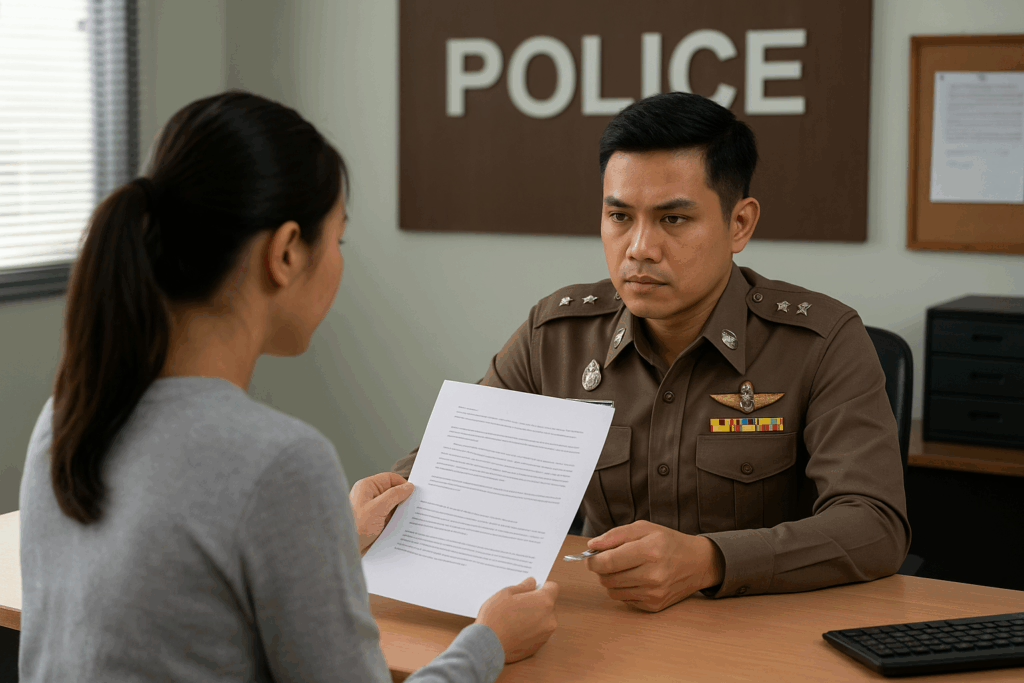Filing a Criminal Complaint in Thailand: Legal Requirements and Procedures

As a leading law firm in Bangkok, we regularly advise clients on the correct procedure for filing a criminal complaint. Understanding this process is crucial because a mistake can render the complaint invalid under the Thai law.
This article provides an academic and practical analysis of the essential legal requirements for lodging a complaint and the consequences of non-compliance.
Who Has the Right to File a Complaint?
Under Thai criminal procedure, only the direct victim may validly file a complaint.
For legal entities, such as companies, the authorized director must act on the company’s behalf.
The Supreme Court of Thailand has consistently ruled that shareholders or employees do not qualify unless formally authorized.
For statutory reference, see Section 123 of the Criminal Procedure Code (Royal Thai Government Gazette).
Time Limit for Private Offenses
Private offenses, such as defamation, are subject to a three-month limitation period under Section 96 of the Thai Penal Code. Victims must file a valid complaint within three months of discovering both the offense and the offender’s identity. Beyond this period, the right to complain lapses.
For further context, consult the Thai Penal Code (Office of the Council of State).
